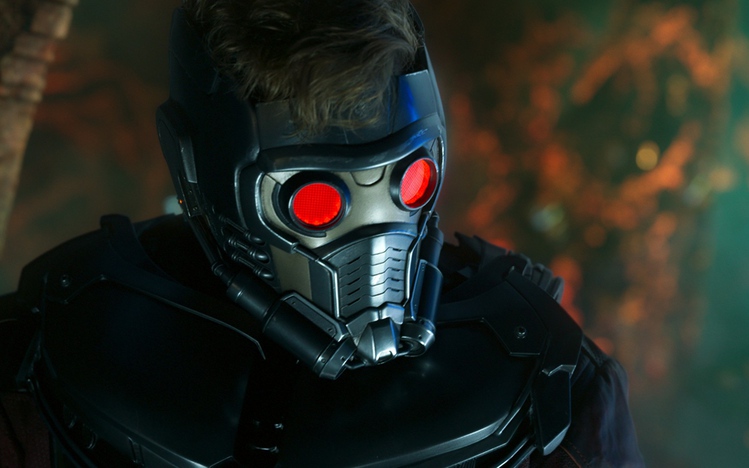

#Leadership themes inmr. robot tv
In the book Red Wheelbarrow that accompanied the TV show and presented events just prior to the start of Season 2, further gender trouble was hinted at in Elliot’s dream of being in a gathering of loved ones. Plus, of course, the show pulled no punches with sexual tension between Elliot and a canonically bisexual male character, Tyrell Wellick.įor these reasons, queer viewers, including and maybe especially nonbinary and asexual viewers, could see themselves in Elliot. He didn’t have any illusions of out-macho-ing other men threatening him he had to find other ways to survive and retaliate. Elliot deliberately distanced himself from dudebro culture. Sex was presented, in Season 1, as something that just sort of happened to Elliot – he didn’t have a lot of sexual agency. Part of it was Elliot’s skinny, goth-y androgyny, part of it the way his body was frequently shown subject to malfunction and violation (sweaty and shaking from opiate withdrawal getting beat up) which complicate typical heteromasculinity. He embodied less of a male-specific story, and instead a more accessible portrait of alienation and suffering than any of his forebears, Holden Caulfield or Tyler Durden or even Donnie Darko. Elliot was not just a misfit because of existential ennui he suffered from serious mental illness and a morphine addiction.Īnd, to me, at least in the first two seasons, Elliot’s gender and sexuality had enough ambiguity to make him resonate deeply. His upbringing was middle class, but more characterized by outright abuse rather than the neglectful, disapproving wealthy parents that are sketched out in many of these stories. The character was, and was played by, a man of color. Robot went far beyond that trope.įirst, Elliot was a pretty different person than your standard Caulfield. But if this had been merely another angry-young-man story, I would not have loved it like I did. Holden Caulfield is certainly one of Elliot’s narrative ancestors – “everyone’s a phony” and “we’ve all been indoctrinated into corporate culture, to Instagram photos and buy Starbucks” are variations of the same message. Robot consciously acknowledges Fight Club as a major reference point, and Elliot Alderson immediately invited comparisons to archetypal angry young men, Holden Caulfield and beyond. Content warnings for discussion of violence and sexual assault/abuse. But you weren’t the TV show I thought you were. Now, after the concluding Season 4, I am signing the divorce papers. Robot, but my ardor started to cool sometime in Season 3. I thought I was in it for the long haul with Mr. They may smooth themselves down into a deeper, more sustainable love. Intense infatuations can develop in a couple of different ways, whether we’re talking about love affairs with TV shows or with people. I would think about this show every day, I would defend it to the death, I would never leave its side. The chance to destroy capitalism represented as a forbidden lover. I was stunned at the use of this love song, the hit-you-in-the-gut emotions of the will-you / won’t-you-stay trope, to express the feeling of Elliot’s choice. We’ll talk to the trees that worship the windĮlliot contemplates his power to take down capitalism We’ll sail on the sun, we’ll ride on the rain

As Elliot walks through the streets and subway tunnels, contemplating the choice, Neil Diamond’s version of “If You Go Away” plays - melancholy minor key about a love about to be lost, swelling into major-key hope and possibility on the hypothetical about the lover not leaving:
#Leadership themes inmr. robot crack
In the very first episode, a mysterious figure offers Elliot a role in the hack of a lifetime, a hack that, by erasing debt, could crack and crumble the edifice of capitalism causing so much malaise in Elliot’s world.

There was the supporting cast including interesting women and LGBTQ characters the open acknowledgement of the evils of modern capitalism the surreal and foreboding atmosphere the exploration of drug abuse and mental illness the music … oh, the music. Rami Malek’s acting as Elliot Alderson was the hook: TV critics took serious notice, and so (eventually) did the Emmys.Īfter the hook, several other things sealed my fate of obsession with this show, the brainchild of Sam Esmail, who wrote and directed most of the series. Robot, which I sat down to catch up on in 2016 as Season 2 started to air, had me hooked from the get-go. Then he pulls up his hood and blends into the crowd. A slight man wearing a hoodie, wide-eyed, wracked with anxiety but assured in what he’s about to do, reveals he’s going to expose a child pornography dealer – not for blackmail, but for justice.


 0 kommentar(er)
0 kommentar(er)
